In this comprehensive guide, learn about private money lending and how it serves as an alternative financing option for various ventures. Explore its benefits, risks, and FAQs.
Introduction
Private Money Lending, also known as private lending or hard money lending, is an alternative financing option that has gained popularity in recent years. Unlike traditional bank loans, private money lending involves individuals or private institutions lending money to borrowers based on the value of the collateral, such as real estate assets. This guide will take you through the ins and outs of private money lending, its advantages, and drawbacks, and how it can be a valuable resource for various ventures.
Private Money Lending: Understanding the Basics
Private money lending serves as an alternative to conventional loans, offering unique advantages and considerations. Here are the key components that define this financial arrangement:
- Definition and Purpose of Private Money Lending
Private money lending involves individuals or private entities providing short-term loans secured by collateral, typically real estate properties. The loans are used for various purposes, such as real estate investments, business funding, or bridging financial gaps.
- The Role of Private Money Lenders
Private money lenders act as the source of funds for borrowers who may not qualify for traditional bank loans due to credit issues, limited documentation, or time-sensitive financing needs. These lenders may include wealthy individuals, investment groups, or specialized private lending companies.
- Key Features of Private Money Loans
Private money loans often have shorter terms, higher interest rates, and more flexible approval criteria compared to traditional loans. The collateral’s value primarily determines the loan amount, and the focus is on the asset’s quality rather than the borrower’s creditworthiness.
- Pros and Cons of Private Money Lending
Private money lending comes with its share of advantages and disadvantages. Let’s explore them:
Advantages:
- Faster Approvals: Private money loans can be approved quickly, making them suitable for time-sensitive projects.
- Flexibility: Lenders can tailor loan terms to meet specific borrower needs.
- Less Stringent Requirements: Borrowers with less-than-perfect credit or unconventional income sources have a better chance of securing funding.
Disadvantages:
- Higher Interest Rates: Private money loans typically carry higher interest rates to compensate for the increased risk taken by the lender.
- Shorter Terms: Borrowers must repay the loan within a relatively short period, which can be challenging for certain projects.
- Potential Scams: As with any financial transaction, borrowers must be cautious of fraudulent lenders.
Applying for a Private Money Loan: The Process Explained
Applying for a private money loan involves several crucial steps that borrowers should be aware of to ensure a smooth process. Here’s a breakdown of the typical procedure:
- Identifying a Reliable Private Money Lender
The first step is to research and find reputable private money lenders who have a track record of successful lending and positive client reviews. Look for lenders who specialize in your specific financing needs.
- Initial Consultation and Loan Pre-Approval
Once a suitable lender is identified, borrowers usually have an initial consultation to discuss their funding requirements and present their project details. If the lender is interested, they may provide a pre-approval, outlining the potential loan terms.
- Property Evaluation and Due Diligence
After pre-approval, the lender will conduct a thorough evaluation of the collateral property to assess its value and potential risks. This step is crucial to determine the loan amount and terms.
- Loan Agreement and Documentation
If the property evaluation is successful, the lender and borrower will finalize the loan agreement, outlining the terms, conditions, and repayment schedule. The borrower must provide all necessary documentation during this stage.
- Closing the Loan
With the loan agreement signed and all paperwork completed, the lender will fund the loan, and the borrower can proceed with their intended project.
Advantages of Private Money Lending in Real Estate Investments
Private money lending plays a significant role in real estate investments, offering benefits that traditional financing options might not provide. Let’s explore these advantages:
- Faster Access to Funding for Real Estate Deals
Investors in the real estate market often encounter time-sensitive opportunities that require prompt funding. Private money lenders can provide quicker access to capital compared to traditional banks, allowing investors to seize profitable deals.
- Flexibility in Deal Structuring
Private money lenders are generally more flexible in structuring deals, providing investors with more room for negotiation. This flexibility can be beneficial when dealing with unique or unconventional investment opportunities.
- Overcoming Credit Constraints
Real estate investors with less-than-perfect credit scores may find it challenging to secure traditional bank loans. Private money lenders focus more on the property’s value, making it easier for investors with credit constraints to access financing.
- Ability to Finance Risky Projects
Traditional banks may be hesitant to finance high-risk real estate projects, but private money lenders may be more open to funding ventures with greater potential returns.
Risks Associated with Private Money Lending
While private money lending offers significant advantages, it also comes with certain risks that borrowers and investors should carefully consider:
- Higher Interest Rates and Costs
Private money loans typically come with higher interest rates and additional costs, which can significantly impact overall project expenses. Borrowers must calculate the potential return on investment to ensure the deal remains profitable.
- Shorter Loan Terms
Private money loans usually have shorter repayment periods, and investors must have a clear strategy to repay the loan within the agreed-upon timeline.
- Collateral Risk
As private money loans are secured by collateral, borrowers risk losing their property if they default on the loan. Proper risk assessment is essential to mitigate this potential hazard.
- Predatory Lending
Some unethical private money lenders may engage in predatory practices, taking advantage of vulnerable borrowers. Conducting due diligence and choosing reputable lenders is crucial to avoid falling victim to scams.
FAQs About Private Money Lending
Q: What is the main difference between private money lending and traditional bank loans?
A: The primary difference lies in the funding source and approval process. Private money lending involves individuals or private entities providing loans based on collateral, while traditional bank loans come from financial institutions following a stringent approval process.
Q: What are the typical loan terms for private money lending?
A: Private money loans usually have short terms ranging from a few months to a few years. The loan duration is significantly shorter than conventional bank loans.
Q: Can I use private money lending for a fix-and-flip real estate project?
A: Yes, private money lending is commonly used for fix-and-flip ventures. The quick approval process and flexibility in deal structuring make it an ideal financing option for such projects.
Q: How do private money lenders determine the loan amount?
A: Private money lenders determine the loan amount based on the property’s value and the loan-to-value (LTV) ratio. The LTV ratio represents the loan amount as a percentage of the property’s appraised value.
Q: Are there any specific risks associated with private money lending in real estate?
A: Yes, some risks include higher interest rates, shorter loan terms, and the potential loss of the collateral property if the borrower defaults on the loan.
Q: What factors should I consider when choosing a private money lender?
A: Factors to consider include the lender’s reputation, experience, interest rates, loan terms, and any additional fees or charges.
Conclusion
Private money lending serves as a valuable alternative financing option for various ventures, especially in real estate investments. Understanding the process, advantages, and risks associated with private money lending is essential for making informed financial decisions. Whether you’re a real estate investor seeking quick funding or an entrepreneur looking for alternative financing, private money lending can be a viable solution. However, it’s crucial to


